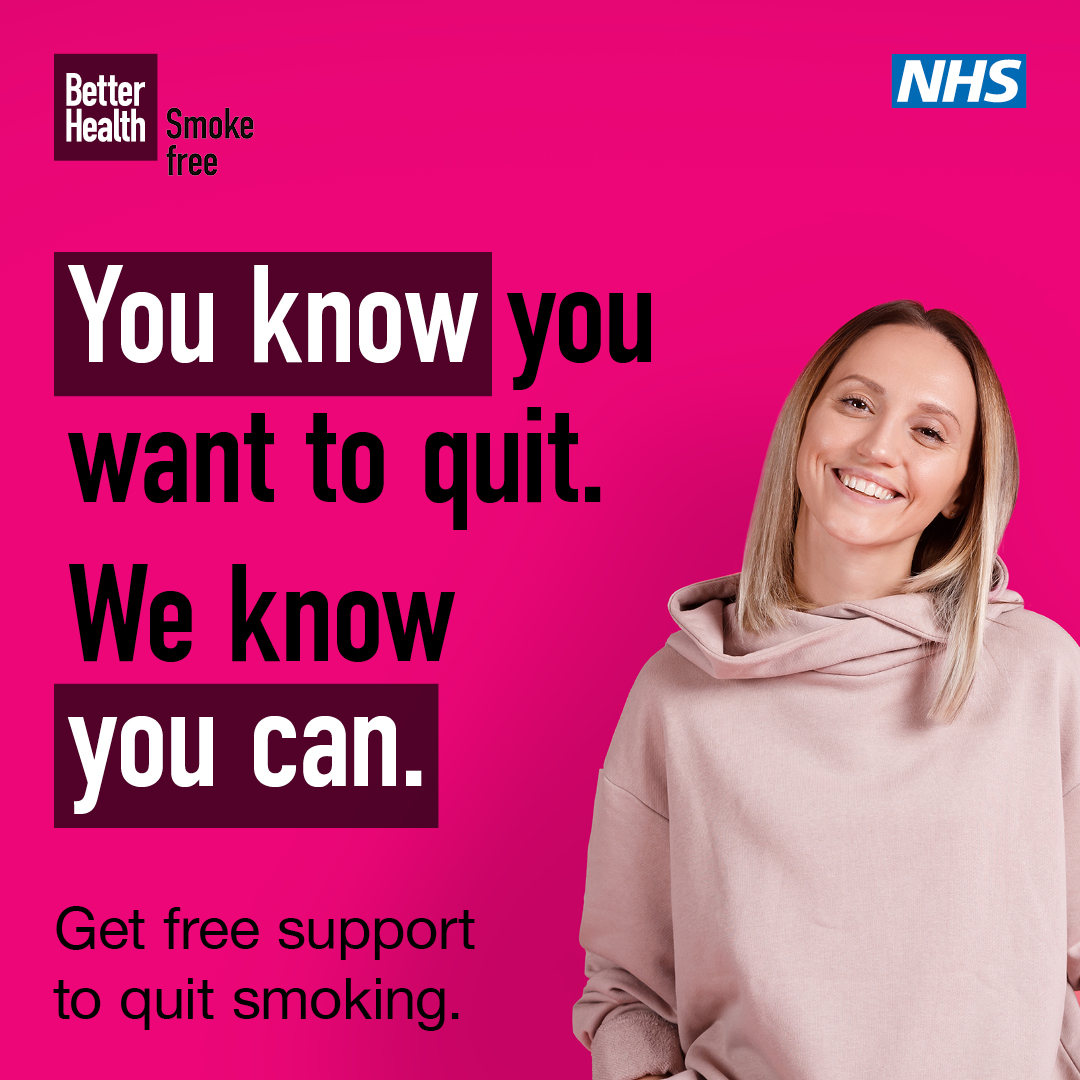As the calendar flips to 2024, the National Health Service (NHS) in the United Kingdom is embarking on a powerful mission: to encourage 5.3 million smokers across the nation to take a bold step toward better health. The smoke free campaign aims not only to transform individual lives but also to create a ripple effect that benefits families, communities, and future generations. Let’s delve into the details of this crucial initiative and explore why quitting smoking matters more than ever.
Urgent Call to Action
On No Smoking Day, which falls on March 13, 2024, leading health organisations—including Action on Smoking and Health (ASH), Cancer Research UK, and Asthma + Lung UK—are joining forces with the government to rally smokers. The message is clear: Make a quit attempt. It’s a call to action that echoes across the country, urging smokers to break free from the grip of tobacco addiction.
The Cost of Smoking
Smoking takes a toll not only on individual health but also on our healthcare system. The latest statistics reveal that smoking costs the NHS a staggering £2.4 billion annually. Moreover, it contributes to at least 15 types of cancers, including lung cancer and acute myeloid leukemia. By quitting, smokers not only save their own lives but also alleviate the burden on our healthcare infrastructure.
The Smoke free Generation
In 2024, the UK government is introducing groundbreaking changes to create the Smoke free Generation. What does this mean? Simply put, anyone aged 15 or under in 2024 will never legally be sold cigarettes or other tobacco products—even after they turn 18. This law applies to all tobacco products, including cigarettes, cigars, shisha, chewing tobacco, heated tobacco products, and herbal smoking alternatives.
Benefits of Quitting
Physical Health Improvements
Quitting smoking yields almost immediate benefits:
- 20 minutes: Your pulse rate starts returning to normal.
- 8 hours: Oxygen levels recover, and harmful carbon monoxide levels decrease by half.
- 48 hours: All carbon monoxide is flushed out, and your senses of taste and smell improve.
- 72 hours: Breathing feels easier as bronchial tubes relax, and your energy increases.
- 2 to 12 weeks: Improved circulation benefits your heart and muscles.
- 3 to 9 months: Coughs, wheezing, and breathing problems improve as lung function increases by up to 10%.
- 1 year: Your risk of heart attack halves compared to that of a smoker.
- 10 years: Your risk of death from lung cancer also halves compared to that of a smoker.
Mental Well-being
Quitting smoking isn’t just about physical health. After as little as 6 weeks of being smoke-free, your mental health and overall well-being receive a boost. The journey toward a smoke-free life is an investment in yourself and your loved ones.
How to Quit
Seek Support
While some may attempt to quit with sheer willpower, it’s much easier with the right support. Consider:
- Nicotine vapes: Substantially less harmful than cigarettes, these can aid your journey.
- Stop smoking aids: These help manage nicotine cravings and withdrawal symptoms.
- Local Stop Smoking Services: Get free expert help and boost your chances of quitting by 3 times.
Be Persistent
Don’t give up! If you’ve tried before, explore different methods until you find what works for you. Remember, every quit attempt brings you closer to a healthier, smoke-free life.
Conclusion
The NHS’s smoke free campaign in 2024 is a beacon of hope. Let’s stand together, support one another, and create a smoke-free legacy for generations to come. Visit the NHS Better Health website for tools, tips, and inspiration. Remember, quitting smoking isn’t just a resolution—it’s a revolution for better health! .
Information source: Quit smoking – Better Health – NHS (www.nhs.uk)








